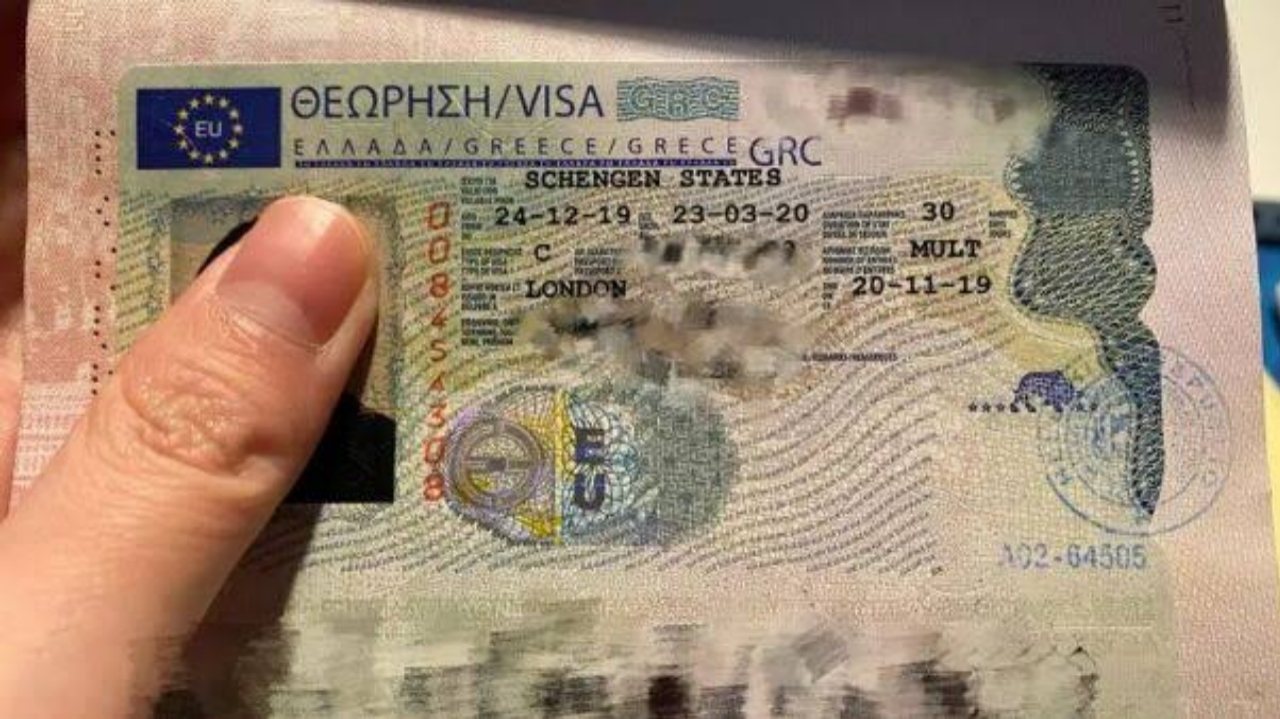Greece is already very popular countries for foreigners but it’s now offer more than tourism to digital nomads. With Greece digital nomad visa those work remotely can enjoy Greece for years instead of weeks.
What’s Greece digital nomad visa?

Greece digital nomad visa is a residence permit of one year for those who work remotely. This visa will allow foreigners ( non European citizens) to work remotely from Greece for one year.
If they wish and still meet the requirements they will be able to apply for extension and one year more stay will be granted to them.
In total Greece digital nomad visa will grant tow years stay for digital nomads in this beautiful country.
Greece digital nomad visa is allow your family members also to come to Greece, according to the requirements you have to get 20% additional income for your spouse and 15% for your each child.
Greece digital nomad visa requirements
To apply for Greece digital nomad visa there are several requirements which should be completed, here is list with explanation of these requirements:
You aren’t working for a company located in Greece, you should work for a company or clients who are located outside of Greece.
You should have the equipments required for your remote work with stable internet connection.
You need to provide a document which shows your business, work or job existence, it can be work contract, job letter, partnership agreement.
You should meet the minimum income requirement, if you are alone you need to earn 3,500 euro per month, if you are married you need to earn 4,200 euro per month and if you have child you will need to prove 4,830 euro income per month.
With these requirements you need other general documents which are required when you apply for Greece digital nomad visa at Greece embassy or consulate.
There documents are:
Passport: minimum 6 months valid passport with tow blanket pages.
Photos: 2 passport sized photos with white background taken within last 6 months.
Criminal Record: you need a clean a criminal record, it should be presented along with other documents.
Health insurance: you need a full coverage health insurance which protects you against all possible risks during your entire stay in Greece.
Read more: Romania digital nomad visa guide
Medical certificate: you need to get a medical certificate which show you are at good health.
Accommodation: you also need a proof of accomodation it can be rental agreement or hotel paid reservation.
Air ticket: a flight ticket reservation is also required during apply for Greece digital nomad visa.
How to apply for Greece digital nomad visa?

To apply for Greece digital nomad visa follow the below Steps:
Step 1: contact the Greece embassy
You need to contact the embassy of Greece, ask about the visa requirements, because embassies may have different requirements or procedures for different countries.
For example in some countries maybe the embassy don’t request criminal record but in other countries they may request it.
Step 2: Gather the Documents
When you contacted the embassy they will give you a list of required documents, make ready all the required documents, check it along with the list and check it’s dates all documents need to be up dates.
As we mentioned above, all those documents are generally required, collect all the documents and fill out the vjsa application form, get ready to submit it.
Step 3: submit visa application
In this stage just deliver the documents to embassy, according to the local regulations you may need to deliver the documents through courier or by yourself.
You need to pay the visa fee of 75 euro and than wait for interview, in some countries they may arrange an interview.
Step 4: Visa results
After interview now you need to wait for 10 days maximum 15 days that get a news from the embassy.
If your visa was approved, you start your trip to Greece than you need to apply their for residence permit.
Tax rates in Greece for digital nomads
Greece has best tax rates for digital nomads, if you stay 6 months in Greece per year you don’t need to pay any income tax, it’s not making any difference how much more money you make.
But if you stay more than 6 months in one year than you will be a tax payer resident and need to pay income tax whatever the good news is that there is no tax for those who earn less than 12,000 € per month.
If you earn 12000€ to 16000€ per month than you need to pay half of the original tax, original tax for normal citizens and residents is 18% those who earn above 12000€ monthly but digital nomads will have to pay 9%.
Benefits of Greece digital nomad visa
Tax exemption: this is good to know that if you earn up to 12000€ you don’t have to pay any tax. Well this is a unique in digital nomad visas.
For example in Spain if you stay more than 6 months you need to pay 24% income tax, in Portugal you need to pay 20% income tax.
Visa free Schengen: Greece is located within the Schengen Area is also a major draw. the digital nomad visa allows for travel within the Schengen Zone for short stays, providing digital nomads the opportunity to explore other European countries easily.
Read more: How to apply for Hungary digital nomad visa?
This is particularly appealing for those who value travel and cultural exploration as part of their lifestyle.
High Quality life: Greece boasts a high quality of life. from its stunning landscapes and beautiful beaches to its rich history and vibrant culture, the country offers an enriching living experience.
The Mediterranean climate, renowned cuisine, and friendly locals add to the overall appeal, making it a desirable place to live and work.
Good infrastructure: Greece has good infrastructure to support digital nomads. Major cities like Athens and Thessaloniki offer reliable internet and numerous coworking spaces, ensuring that remote workers can stay productive.
These cities also have a growing community of digital nomads, providing networking opportunities and a sense of community for newcomers.